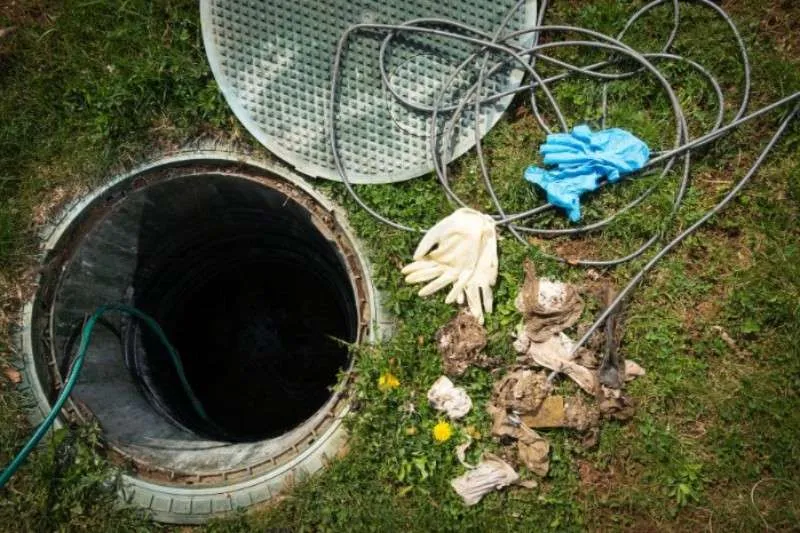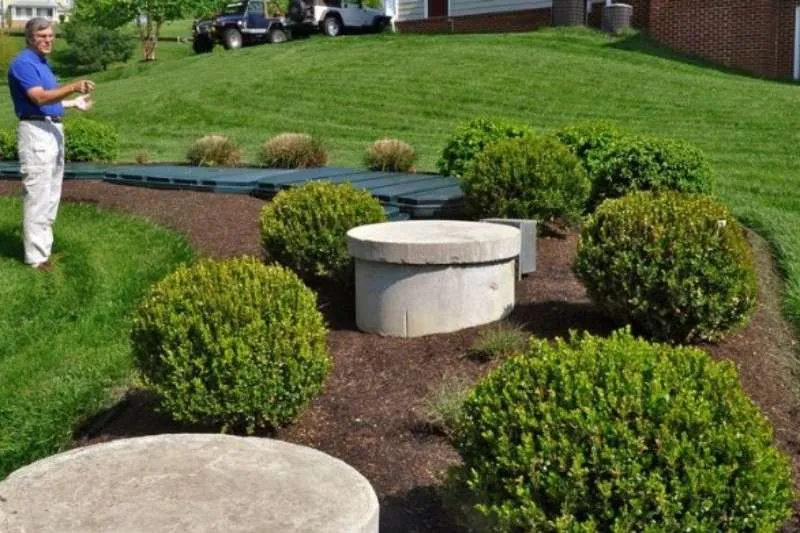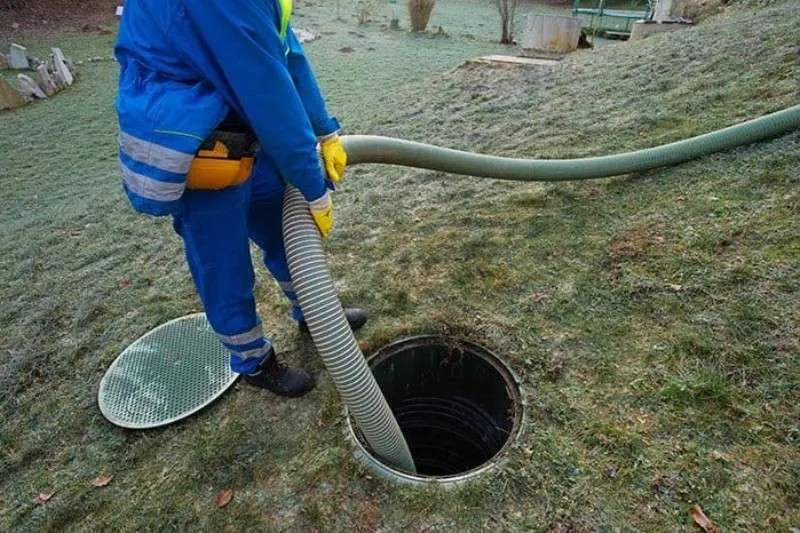Are you in the market for a new home? Before signing on the dotted line, it is essential to consider all factors closely before making such an important decision. A key item that must not be overlooked when purchasing a residence is a professional septic system inspection before purchase.
A thorough review of a used septic system can reveal warning signs that may have gone unnoticed and avoid costly repairs down the road or even provide information about proper maintenance techniques needed for the life of your investment. Whether this is your first time buying property or expanding your real estate portfolio, ensure you know what lies beneath.
Introduction to septic system inspections for homebuyers
When buying a home, it’s easy to get caught up in the excitement of visiting open houses and imagining yourself living in your dream home. But important steps can help ensure your happiness is sustained long after moving day before you sign on the dotted line. One of those essential steps is having a septic system inspection.
Septic systems are important in removing waste from your home and keeping your property clean, so having them inspected and serviced regularly is essential. This is especially true if you’re buying a new home since the seller may be unaware of any underlying problems or issues with their septic system.
The Role of Septic System Inspections in the Home-buying Process
A septic system inspection is an important part of the home-buying process. It helps to ensure that your new home’s septic system functions as it should and is free from any potential issues or problems. During a septic system inspection, a certified inspector will inspect the septic tank’s healthy well, leach field, and other septic system components to ensure no cracks or leaks that could lead to costly repairs in the future.
The home inspector will also test for any signs of buildup or blockages in the pipes and check for any evidence of previous repair work. This information will be included in a written report that the buyer can use to make an informed decision about their new home.
Potential Consequences of Skipping a Septic System Inspection

Unfortunately, many homebuyers don’t realize the importance of having a septic system inspection before they buy a house. Skipping this step can have serious repercussions, including costly repairs and potential health hazards. Septic systems should be serviced regularly to ensure they function as they should, or else you may find yourself dealing with backed-up sewage or contaminated groundwater.
A septic system inspection is one of the most important steps in the home-buying process and shouldn’t be skipped. It helps to ensure that your new home is safe and sanitary for you and your family. It may also provide valuable information about potential repairs or upgrades that need to be made in the future. By having a septic system inspection, you can rest assured knowing that you are making an informed decision about your new home.
A septic system inspection is an important element of the home-buying process that must not be. A thorough inspection of your home’s septic system provides vital information about its condition and helps you to make an educated decision when investing in a property. Having a professional inspect your septic system before buying a new home can save you from costly repairs or potential health hazards.
Identifying potential septic system issues before the purchase
When buying a home, it is important to consider the condition of the septic system. A poorly maintained septic system can be a costly headache and have serious environmental consequences.
Before signing a contract to buy a home, it is essential to know the condition of all major systems in the home, including the septic system. A thorough inspection by an expert septic system contractor can help identify potential issues or problems with a septic system begins, one that may not be visible to the untrained eye.
Signs of septic system problems or failures include slow drains, gurgling in pipes, standing water near the tank or drain field, foul odors near the tank or drain field, wastewater backups into the house, or grass that is greener and grows faster in the area of the tank or drain field. A professional inspection by septic inspectors can help identify problems before they become too expensive.
An inspection by a certified septic system contractor should include a full inspection and a visual inspection of the system, checking for signs of wear and tear. The contractor should also look for any visible repairs that may not have been performed correctly and assess the condition of the tank and drain field to ensure they are in good working order. According to local regulations, the contractor should also check that proper maintenance has been performed routinely, such as regularly scheduled pump-outs.
Estimating costs for septic system repairs or replacement
When buying a home, the septic system is an important yet often overlooked aspect of the inspection. A thorough septic inspection can save you money and prevent future issues. The importance of a septic system inspection before purchasing or selling a home cannot be overstated. Knowing what to look for and understanding the financial implications are key when making this important decision.
Estimating the costs for septic system repairs or replacement is an important part of the septic inspection and process. A professional should be able to estimate how much it will cost to repair or replace any components that need attention. This information can be used by potential buyers and sellers when negotiating a purchase price.
Septic system issues’ financial impact on homebuyers must be considered when purchasing a home. Septic systems typically require regular maintenance and repairs, which can add up quickly if not taken care of regularly. Potential buyers should factor in the costs associated with any necessary repairs or replacements into the purchase decision before committing to buy a property.
In some cases, replacing the entire septic system may be necessary. This can be costly and should give potential buyers pause before agreeing to purchase a property. The cost of replacing a septic system can vary depending on the size of the septic tank inspected well, the type of soil in the area, and other factors.
The septic system inspection process involves a comprehensive septic system inspection.
The septic system inspection process involves a comprehensive system assessment to ensure its condition is in good working order. This includes visual inspection involves checking for signs of damage, verifying that all components are installed properly, and performing tests to ensure the system functions correctly.
A professional inspector has the expertise to determine if a septic system is functioning properly and can provide recommendations on any necessary repairs or upgrades. To begin, the inspector will assess the septic tank’s age and condition, noting any visible damage or signs of wear and tear. They will then inspect all components within the septic system, including pipes, filters, pumps, and other parts for functionality.
The inspector will use specialized equipment to measure the pressure and flow throughout the septic system works and test for any signs of blockage. These tests help to identify any potential problems that could lead to septic system failure in the future. After these tests, the inspector will provide a detailed report outlining any necessary repairs or upgrades.
Negotiating septic system repairs or replacement with the seller
It is highly recommended that a potential homebuyer thoroughly inspect the septic system before purchasing. A thorough inspection will ensure all components function properly and comply with local regulations or requirements. This can be done by hiring a qualified professional inspector for an in-depth examination of the entire septic system inspected above, including tank size and condition, drain field performance, and any necessary repairs or upgrades that may be needed.
Negotiating septic system repairs or replacements with the seller is crucial in home buying. If an inspection reveals issues with the septic system, these should be brought to the seller’s attention. It is important to remember that the cost of these repairs or upgrades will likely be baked into the final purchase price. This is why ensuring repairs or upgrades are properly documented and permitted before any agreements are made is critical.
Finally, ensuring that any septic system work is properly documented and permitted to comply with local regulations and requirements is important. The inspector should be able to provide documentation of any repairs or upgrades made to modern septic systems and proof that applicable regulations completed the work. This ensures that the buyer is protected legally and financially when purchasing the home.
Preparing for septic system ownership

A Septic System Inspection Before Home Purchase is of utmost importance. A septic system requires specialized knowledge and maintenance, so it’s wise to ensure it is in good condition before purchasing a home with septic tanks. A qualified professional should often inspect all aspects of the septic system before purchase.
The inspection should include a visual inspection of the tank and drain field and a pump test to ensure that all components function properly. In addition, septic system records should be reviewed, including documentation of any repairs or treatments done in any previous septic inspections. This will give you an idea of what must be done to maintain your system in the future.
FAQs
Why is a septic system inspection important when buying a home?
A septic system inspection is important when buying a home because it provides peace of mind knowing that it is in good condition and functioning as it should. A well-functioning septic system prevents backups, avoids costly repairs, and ensures proper solid waste and disposal.
What potential issues can a septic system inspection uncover?
A septic system inspection can uncover potential issues, such as clogs, root intrusion, improper connections, tank size and condition, drain field performance, and necessary repairs or upgrades.
How can a septic system inspection affect the cost of purchasing a home?
A septic system inspection can affect the cost of purchasing a home if it reveals any issues that need to be addressed. The cost of necessary repairs or upgrades can often be baked into the final purchase price, so ensuring they are properly documented and permitted is critical.
What does a professional septic system inspection involve?
A professional septic system inspection involves a visual inspection of the tank and drain field, a pump test to ensure that all components are functioning properly, a review of septic system records, including documentation of any repairs or treatments done in the septic system works the past, and finally ensuring that any work is properly documented and permitted to comply with local regulations.
How often should I inspect my septic system after purchasing a home?
It is recommended to inspect your septic system annually. This will help ensure that it functions properly and catch any small issues before they become larger and more costly problems.
Conclusion
All in all, purchasing a new home is an incredibly important decision, and there can be consequences for not taking the necessary precautions. A septic system inspection is one key element that must not be neglected since it may save future financial hardship. When considering your options for buying a house, do the research and contact a reliable septic system specialist to help you avoid problems down the road. Before committing to any property purchase, consider having a comprehensive septic system inspection done.


